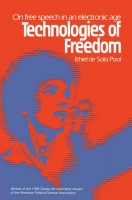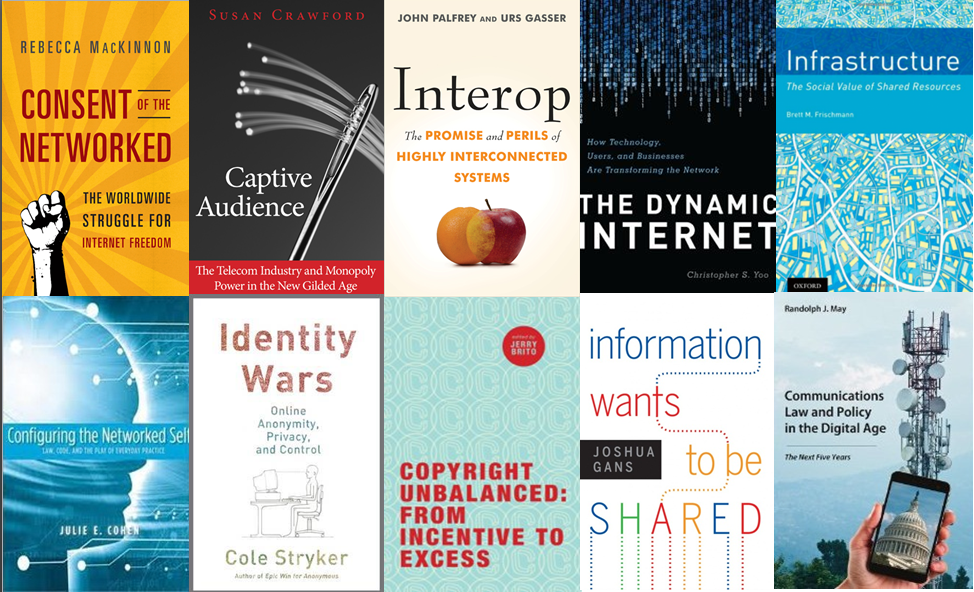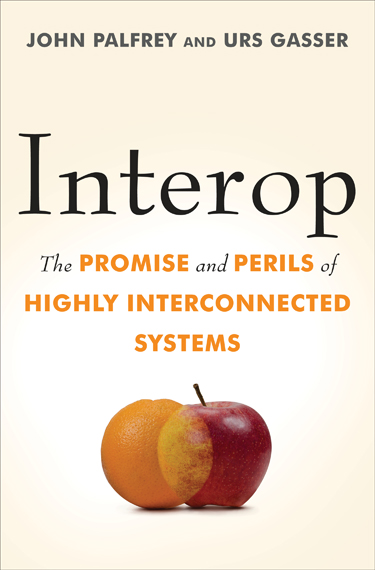 The Internet’s greatest blessing — its general openness to all speech and speakers — is also sometimes its biggest curse. That is, you cannot expect to have the most widely accessible, unrestricted communications platform the world has ever known and not also have some imbeciles who use it to spew insulting, vile, and hateful comments.
The Internet’s greatest blessing — its general openness to all speech and speakers — is also sometimes its biggest curse. That is, you cannot expect to have the most widely accessible, unrestricted communications platform the world has ever known and not also have some imbeciles who use it to spew insulting, vile, and hateful comments.
It is important to put things in perspective, however. Hate speech is not the norm online. The louts who spew hatred represent a small minority of all online speakers. The vast majority of online speech is of a socially acceptable — even beneficial — nature.
Still, the problem of hate speech remains very real and a diverse array of strategies are needed to deal with it. The sensible path forward in this regard is charted by Abraham H. Foxman and Christopher Wolf in their new book, Viral Hate: Containing Its Spread on the Internet. Their book explains why the best approach to online hate is a combination of education, digital literacy, user empowerment, industry best practices and self-regulation, increased watchdog / press oversight, social pressure and, most importantly, counter-speech. Foxman and Wolf also explain why — no matter how well-intentioned — legal solutions aimed at eradicating online hate will not work and would raise serious unintended consequences if imposed.
In striking this sensible balance, Foxman and Wolf have penned the definitive book on how to constructively combat viral hate in an age of ubiquitous information flows. Continue reading →
Are we as globalized and interconnected as we think we are? Ethan Zuckerman, director of the MIT Center for Civic Media and author of the new book, Rewire: Digital Cosmopolitans in the Age of Connection, argues that America was likely more globalized before World War I than it is today. Zuckerman discusses how we’re more focused on what’s going on in our own backyards; how this affects creativity; the role the Internet plays in making us less connected with the rest of the world; and, how we can broaden our information universe to consume a more healthy “media diet.”
Download
Related Links
 This year marks the 30th anniversary of the publication of Technologies of Freedom: On Free Speech in an Electronic Age by the late communications theorist Ithiel de Sola Pool. It was, and remains, a remarkable book that is well worth your time whether you read it long ago or are just hearing about it for the first time. It was the book that inspired me when I first read in 1994 to abandon my chosen field of study (trade policy) and do a deep dive into the then uncharted waters of information technology policy.
This year marks the 30th anniversary of the publication of Technologies of Freedom: On Free Speech in an Electronic Age by the late communications theorist Ithiel de Sola Pool. It was, and remains, a remarkable book that is well worth your time whether you read it long ago or are just hearing about it for the first time. It was the book that inspired me when I first read in 1994 to abandon my chosen field of study (trade policy) and do a deep dive into the then uncharted waters of information technology policy.
A Technological Nostradamus
Long before most of the world had heard about this thing called “the Internet” or using terms like “cyberspace” or even “electronic superhighway,” Pool was describing this emerging medium, thinking about its ramifications, and articulating the optimal policies that should govern it. In Technologies of Freedom, Pool set forth both a predictive vision of future communications and “electronic publishing” markets as well as a policy vision for how those markets should be governed. “Networked computers will be the printing presses of the twenty-first century,” Pool argued in a remarkably prescient chapter on the future of electronic publishing. “Soon most published information will disseminated electronically,” and “there will be networks on networks on networks,” he predicted. “A panoply of electronic devices puts at everyone’s hands capacities far beyond anything that the printing press could offer.” As if staring into a crystal ball, Pool predicted: Continue reading →
2013 is shaping up to be another big year for Internet and information technology policy books. Here’s a list of what’s coming out or already on the market. As faithful readers know, I put together end-of-year lists of important info-tech policy books, and here are the lists for 2008, 2009, 2010, 2011 and the most recent one for 2012. And here’s my compendium of all the major tech policy books from the 2000s. So I’ll do my best to get through all these books and whatever else follows throughout the year. Consider this my public service to the Internet policy community: I read nerdy Internet policy books so that you don’t have to!
Let me know what else I may have missed and I will add it to the list.
- Ian Brown & Christopher T. Marsden – Regulating Code: Good Governance and Better Regulation in the Information Age
- Robert W. McChesney – Digital Disconnect: How Capitalism Is Turning the Internet Against Democracy
- Jaron Lanier – Who Owns the Future?
- Marvin Ammori – On Internet Freedom
- Abraham H. Foxman and Christopher Wolf – Viral Hate: Containing Its Spread on the Internet
- Giovanni Ziccardi – Resistance, Liberation Technology and Human Rights in the Digital Age
- John O. McGinnis – Accelerating Democracy: Transforming Governance Through Technology
- Scott Shackelford – Managing Cyber Attacks in International Law, Business and Relations: In Search of Cyber Peace
- Viktor Mayer-Schonberger & Kenneth Cukier – Big Data: A Revolution That Will Transform How We Live, Work, and Think
- Evgeny Morozov – To Save Everything, Click Here: The Folly of Technological Solutionism
- Ronald Deibert – Black Code: Inside the Battle for Cyberspace
- Eric Schmidt & Jared Cohen – The New Digital Age: Reshaping the Future of People, Nations and Business
- Dorothea Kleine – Technologies Of Choice? ICTs, Development, and the Capabilities Approach
- Nicco Mele – The End of Big: How the Internet Makes David the New Goliath
- Thomas Rid – Cyber War Will Not Take Place
- Ethan Zuckerman – Rewire: Digital Cosmopolitans in the Age of Connection
- Nate Anderson – The Internet Police: How Crime Went Online, and the Cops Followed
- Paul Rosenzweig – Cyber Warfare: How Conflicts in Cyberspace Are Challenging America and Changing the World
- Alice E. Marwick – Status Update: Celebrity, Publicity, and Branding in the Social Media Age
- Gautam Shroff – The Intelligent Web: Search, Smart Algorithms, and Big Data
- Anupam Chander – The Electronic Silk Road: How the Web Binds the World Together in Commerce
- Laura DeNardis – The Global War for Internet Governance (likely 2014 launch)
The number of major cyberlaw and information tech policy books being published annually continues to grow at an astonishing pace, so much so that I have lost the ability to read and review all of them. In past years, I put together end-of-year lists of important info-tech policy books (here are the lists for 2008, 2009, 2010, and 2011) and I was fairly confident I had read just about everything of importance that was out there (at least that was available in the U.S.). But last year that became a real struggle for me and this year it became an impossibility. A decade ago, there was merely a trickle of Internet policy books coming out each year. Then the trickle turned into a steady stream. Now it has turned into a flood. Thus, I’ve had to become far more selective about what is on my reading list. (This is also because the volume of journal articles about info-tech policy matters has increased exponentially at the same time.)
So, here’s what I’m going to do. I’m going to discuss what I regard to be the five most important titles of 2012, briefly summarize a half dozen others that I’ve read, and then I’m just going to list the rest of the books out there. I’ve read most of them but I have placed an asterisk next to the ones I haven’t. Please let me know what titles I have missed so that I can add them to the list. (Incidentally, here’s my compendium of all the major tech policy books from the 2000s and here’s the running list of all my book reviews.)

Continue reading →
 Looking for a concise overview of how Internet architecture has evolved and a principled discussion of the public policies that should govern the Net going forward? Then look no further than Christopher Yoo‘s new book, The Dynamic Internet: How Technology, Users, and Businesses are Transforming the Network. It’s a quick read (just 140 pages) and is worth picking up. Yoo is a Professor of Law, Communication, and Computer & Information Science at the University of Pennsylvania and also serves as the Director of the Center for Technology, Innovation & Competition there. For those who monitor ongoing developments in cyberlaw and digital economics, Yoo is a well-known and prolific intellectual who has established himself as one of the giants of this rapidly growing policy arena.
Looking for a concise overview of how Internet architecture has evolved and a principled discussion of the public policies that should govern the Net going forward? Then look no further than Christopher Yoo‘s new book, The Dynamic Internet: How Technology, Users, and Businesses are Transforming the Network. It’s a quick read (just 140 pages) and is worth picking up. Yoo is a Professor of Law, Communication, and Computer & Information Science at the University of Pennsylvania and also serves as the Director of the Center for Technology, Innovation & Competition there. For those who monitor ongoing developments in cyberlaw and digital economics, Yoo is a well-known and prolific intellectual who has established himself as one of the giants of this rapidly growing policy arena.
Yoo makes two straight-forward arguments in his new book. First, the Internet is changing. In Part 1 of the book, Yoo offers a layman-friendly overview of the changing dynamics of Internet architecture and engineering. He documents the evolving nature of Internet standards, traffic management and congestion policies, spam and security control efforts, and peering and pricing policies. He also discusses the rise of peer-to-peer applications, the growth of mobile broadband, the emergence of the app store economy, and what the explosion of online video consumption means for ongoing bandwidth management efforts. Those are the supply-side issues. Yoo also outlines the implications of changes in the demand-side of the equation, such as changing user demographics and rapidly evolving demands from consumers. He notes that these new demand-side realities of Internet usage are resulting in changes to network management and engineering, further reinforcing changes already underway on the supply-side.
Yoo’s second point in the book flows logically from the first: as the Internet continues to evolve in such a highly dynamic fashion, public policy must as well. Yoo is particularly worried about calls to lock in standards, protocols, and policies from what he regards as a bygone era of Internet engineering, architecture, and policy. “The dramatic shift in Internet usage suggests that its founding architectural principles form the mid-1990s may no longer be appropriate today,” he argues. (p. 4) “[T]he optimal network architecture is unlikely to be static. Instead, it is likely to be dynamic over time, changing with the shifts in end-user demands,” he says. (p. 7) Thus, “the static, one-size-fits-all approach that dominates the current debate misses the mark.” (p. 7) Continue reading →
 I’m pretty rough on all the Internet and info-tech policy books that I review. There are two reasons for that. First, the vast majority of tech policy books being written today should never have been books in the first place. Most of them would have worked just fine as long-form (magazine-length) essays. Too many authors stretch a promising thesis into a long-winded, highly repetitive narrative just to say they’ve written an entire book about a subject. Second, many info-tech policy books are poorly written or poorly argued. I’m not going to name names, but I am frequently unimpressed by the quality of many books being published today about digital technology and online policy issues.
I’m pretty rough on all the Internet and info-tech policy books that I review. There are two reasons for that. First, the vast majority of tech policy books being written today should never have been books in the first place. Most of them would have worked just fine as long-form (magazine-length) essays. Too many authors stretch a promising thesis into a long-winded, highly repetitive narrative just to say they’ve written an entire book about a subject. Second, many info-tech policy books are poorly written or poorly argued. I’m not going to name names, but I am frequently unimpressed by the quality of many books being published today about digital technology and online policy issues.
The books of Harvard University cyberlaw scholars John Palfrey and Urs Gasser offer a welcome break from this mold. Their recent books, Born Digital: Understanding the First Generation of Digital Natives, and Interop: The Promise and Perils of Highly Interconnected Systems, are engaging and extremely well-written books that deserve to be books. There’s no wasted space or mindless filler. It’s all substantive and it’s all interesting. I encourage aspiring tech policy authors to examine their works for a model of how a book should be done.
In a 2008 review, I heaped praise on Born Digital and declared that this “fine early history of this generation serves as a starting point for any conversation about how to mentor the children of the Web.” I still recommend highly to others today. I’m going to be a bit more critical of their new book, Interop, but I assure you that it is a text you absolutely must have on your shelf if you follow digital policy debates. It’s a supremely balanced treatment of a complicated and sometimes quite contentious set of information policy issues.
In the end, however, I am concerned about the open-ended nature of the standard that Palfrey and Gasser develop to determine when government should intervene to manage or mandate interoperability between or among information systems. I’ll push back against their amorphous theory of “optimal interoperability” and offer an alternative framework that suggests patience, humility, and openness to ongoing marketplace experimentation as the primary public policy virtues that lawmakers should instead embrace. Continue reading →

This Book is NOT about the Net
My latest Forbes column takes a look at Andrew Keen’s latest book, Digital Vertigo: How Today’s Online Social Revolution Is Dividing, Diminishing, and Disorienting Us. It’s an interesting book, and a much better one than his previous screed, Cult of the Amateur. Andrew raises valid concerns about the sheer volume of over-sharing taking place online today. As I note in my review:
Keen is on solid ground when outlining the many downsides of over-sharing, beginning with the privacy and reputational consequences for each of us. “Social media is the confessional novel that we are not only all writing but also collectively publishing for everyone else to read,” he says. That can be a problem because the Internet has a very long memory. A youngster’s silly pranks or soul-searching self-revelations may seem like a fun thing to upload when such juvenile antics or angst will win praise (and plenty of pageviews) from teen peers. Your 34-year-old self, however, will likely have a very different view of that same rant, picture, or video. Yet, that content will likely still be around for the world to see when you do reach adulthood.
And Keen offers many other reasons why we should be concerned about a world of over-sharing and “hypervisibility.” The problem is that Keen drowns out these valid concerns by assaulting the reader with layers of over-the-top pessimistic prognostications and apocalyptic rhetoric. In particular, again and again and again in the book he comes back to George Orwell and his dystopian novel, 1984. Keen insists that some sort of Orwellian catastrophe is set to befall humanity because of social media over-sharing. (See this other Forbes column on Keen’s book, “Why 1984 Is Upon Us,” to see just how far this theme can be pushed). Continue reading →
 The folks at the Concurring Opinions blog were kind enough to invite me to participate in a 2-day symposium they are holding about Brett Frischmann’s new book, Infrastructure: The Social Value of Shared Resources. In my review, I noted that it’s an important book that offers a comprehensive and highly accessible survey of the key issues and concepts, and outlines much of the relevant literature in the field of infrastructure policy. Frischmann’s book deserves a spot on your shelf whether you are just beginning your investigation of these issues or if you have covered them your entire life. Importantly, readers of this blog will also be interested in the separate chapters Frischmann devotes to communications policy and Net neutrality regulation, as well as his chapter on intellectual property issues.
The folks at the Concurring Opinions blog were kind enough to invite me to participate in a 2-day symposium they are holding about Brett Frischmann’s new book, Infrastructure: The Social Value of Shared Resources. In my review, I noted that it’s an important book that offers a comprehensive and highly accessible survey of the key issues and concepts, and outlines much of the relevant literature in the field of infrastructure policy. Frischmann’s book deserves a spot on your shelf whether you are just beginning your investigation of these issues or if you have covered them your entire life. Importantly, readers of this blog will also be interested in the separate chapters Frischmann devotes to communications policy and Net neutrality regulation, as well as his chapter on intellectual property issues.
However, my review focused on a different matter: the book’s almost complete absence of “public choice” insights and Frischmann’s general disregard for thorny “supply-side” questions. Frischmann is so focused on making the “demand-side” case for better appreciating how open infrastructures “generate spillovers that benefit society as a whole” and facilitate various “downstream productive activities,” that he short-changes the supply-side considerations regarding how infrastructure gets funded and managed. I argue that: Continue reading →
 On numerous occasions here at the TLF over the past eight years, I’ve noted the profound influence that the late Ithiel de Sola Pool had on my thinking about the interaction of technology, information, and public policy. In fact, when I needed to pick a thematic title for my weekly Forbes column, it only took me a second to think of the perfect one: “Technologies of Freedom.” I borrowed that from the title of Pool’s 1983 masterpiece, Technologies of Freedom: On Free Speech in an Electronic Age. As I noted in my short Amazon.com review, Pool’s technological tour de force is simply breathtaking in its polemical power and predictive capabilities. Reading this book three decades after it was published, one comes to believe that Pool must have possessed a crystal ball or had a Nostradamus-like ability to foresee the future.
On numerous occasions here at the TLF over the past eight years, I’ve noted the profound influence that the late Ithiel de Sola Pool had on my thinking about the interaction of technology, information, and public policy. In fact, when I needed to pick a thematic title for my weekly Forbes column, it only took me a second to think of the perfect one: “Technologies of Freedom.” I borrowed that from the title of Pool’s 1983 masterpiece, Technologies of Freedom: On Free Speech in an Electronic Age. As I noted in my short Amazon.com review, Pool’s technological tour de force is simply breathtaking in its polemical power and predictive capabilities. Reading this book three decades after it was published, one comes to believe that Pool must have possessed a crystal ball or had a Nostradamus-like ability to foresee the future.
I felt that same was this week when I was re-reading some chapters from his posthumous book, Technologies without Boundaries: On Telecommunications in a Global Age–a collection of his remaining essays nicely edited and tied together by Eli Noam after Pool’s death in 1984. Re-reading it again reminded me of Pool’s remarkable predictive powers. In particular, the closing chapter on “Technology and Culture” includes some of Pool’s thoughts on the future of copyright. As you read through that passage below, please try to remember he wrote these words back in the early 1980s, long before most people had even heard of the Internet and when home personal computing was only just beginning to take off. Yet, from what he already knew about networked computers and digital methods of transmitting information, Pool was able to paint a prescient portrait of the future copyright wars that we now find ourselves in the midst of. Here’s what he had to say almost 30 years ago about how things would play out: Continue reading →
 The Internet’s greatest blessing — its general openness to all speech and speakers — is also sometimes its biggest curse. That is, you cannot expect to have the most widely accessible, unrestricted communications platform the world has ever known and not also have some imbeciles who use it to spew insulting, vile, and hateful comments.
The Internet’s greatest blessing — its general openness to all speech and speakers — is also sometimes its biggest curse. That is, you cannot expect to have the most widely accessible, unrestricted communications platform the world has ever known and not also have some imbeciles who use it to spew insulting, vile, and hateful comments.







 The Technology Liberation Front is the tech policy blog dedicated to keeping politicians' hands off the 'net and everything else related to technology.
The Technology Liberation Front is the tech policy blog dedicated to keeping politicians' hands off the 'net and everything else related to technology.